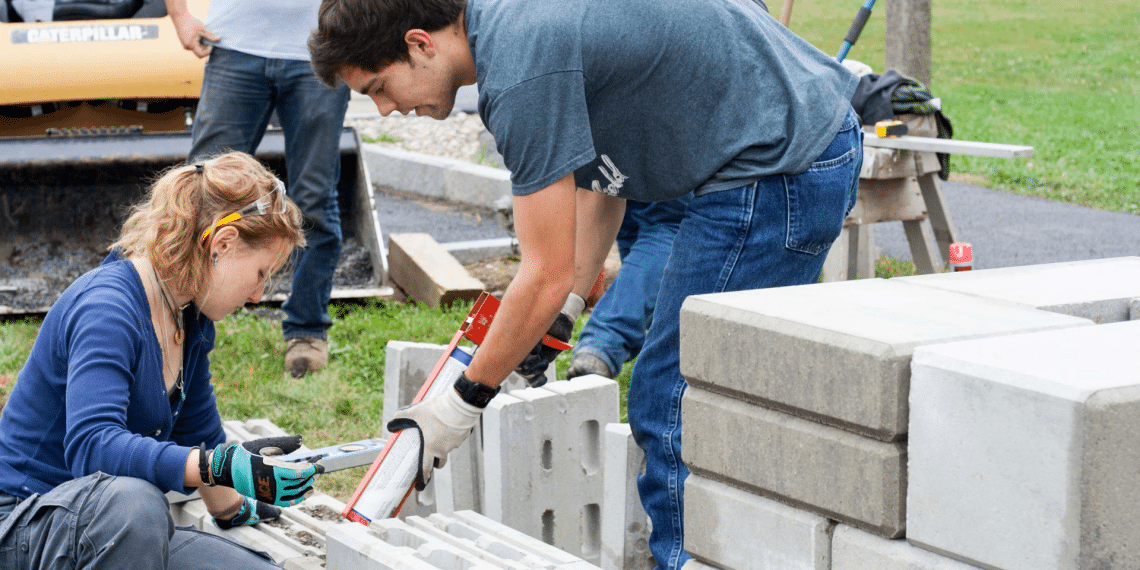
When landscape constructions students at SUNY Cobleskill stepped onto the historic grounds of the Lasell House in Schoharie, New York, they weren’t just on a class field trip. They were there to build something that would last.
Working with the Daughters of the American Revolution, the students got to lay out plans, prepare the base, and install a brand-new walkway as part of their landscape construction course.
For many of them, it was their first time using the professional-grade tools they’d seen on job sites and in trade magazines. And it was made possible by a grant from the Tools for Schools program.
Funded by the ICPI Foundation and managed by the Concrete Masonry & Hardscapes Association (CMHA), Tools for Schools is revolutionizing how hardscaping is taught in colleges and vocational programs.
For Bryan Horr, P.E., Division Engineer of Segmental Pavements at CMHA, it’s all about giving students the kind of hands-on education that sticks.
“One of the things I always stress — and one of the things I know from experience — is that I learned best through hands-on learning,” Horr said. “This program gives students a chance to get that experience with real equipment, in real settings. That kind of learning stays with you.”
Tools for Schools is a grant program. Colleges and vocational schools that have a CMHA-trained instructor and a signed licensing agreement to offer CMHA’s Concrete Paver Installer course as part of their curriculum can apply for up to $20,000 to purchase hardscaping tools — compactors, screeders, saws, and other equipment essentials that are typically outside a school’s budget.
For the grant application, schools are asked to share what kind of program they are planning to teach or what kind of project they hope to accomplish, as well as the initial list of needed tools. Grant agreements must include a promotion plan recognizing the Tools for Schools grant as well as an ongoing maintenance plan for the tools to ensure it will benefit students for years to come.
Once the grant is awarded, the schools purchase the tools, then submit receipts for reimbursement. Many CMHA members also offer discounts to schools who have been awarded this grant, which helps stretch the dollars even further.
Horr said that many of the schools use the tools not only for instruction, but also for campus projects and community collaborations. The Tools for Schools program merges the classroom with the real world.
For many students, this is the initial step in gaining the experience required to get certified as a CMHA Concrete Paver Installer, build a portfolio of real-world work, and enter the workforce with a solid foundation —literally and figuratively.
“This is one of those opportunities that really helps shape the industry’s future,” Bryan says. “We’re helping schools build better programs, and we’re helping students walk into jobs with confidence and experience.”
So, if you’re studying horticulture, landscape construction, or anything that touches the world of hardscaping, here’s a chance to get better tools and the opportunity to lay pavers instead of reading about them.
Talk to your instructor. Ask if your school has considered applying for the Tools for Schools grant. It could change the way you learn and set you up for a career that’s built on something solid.
